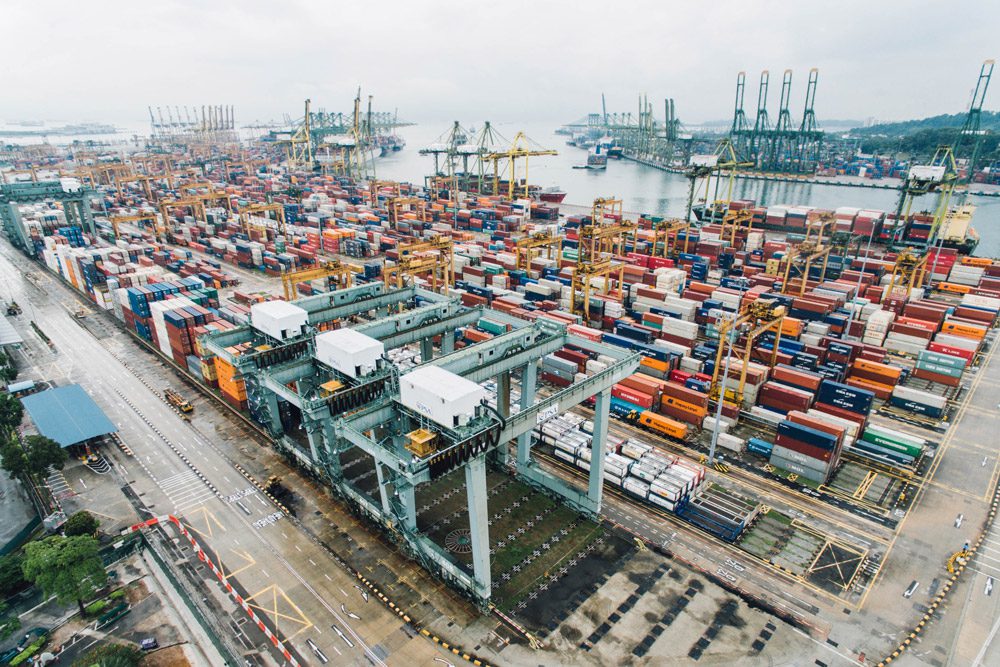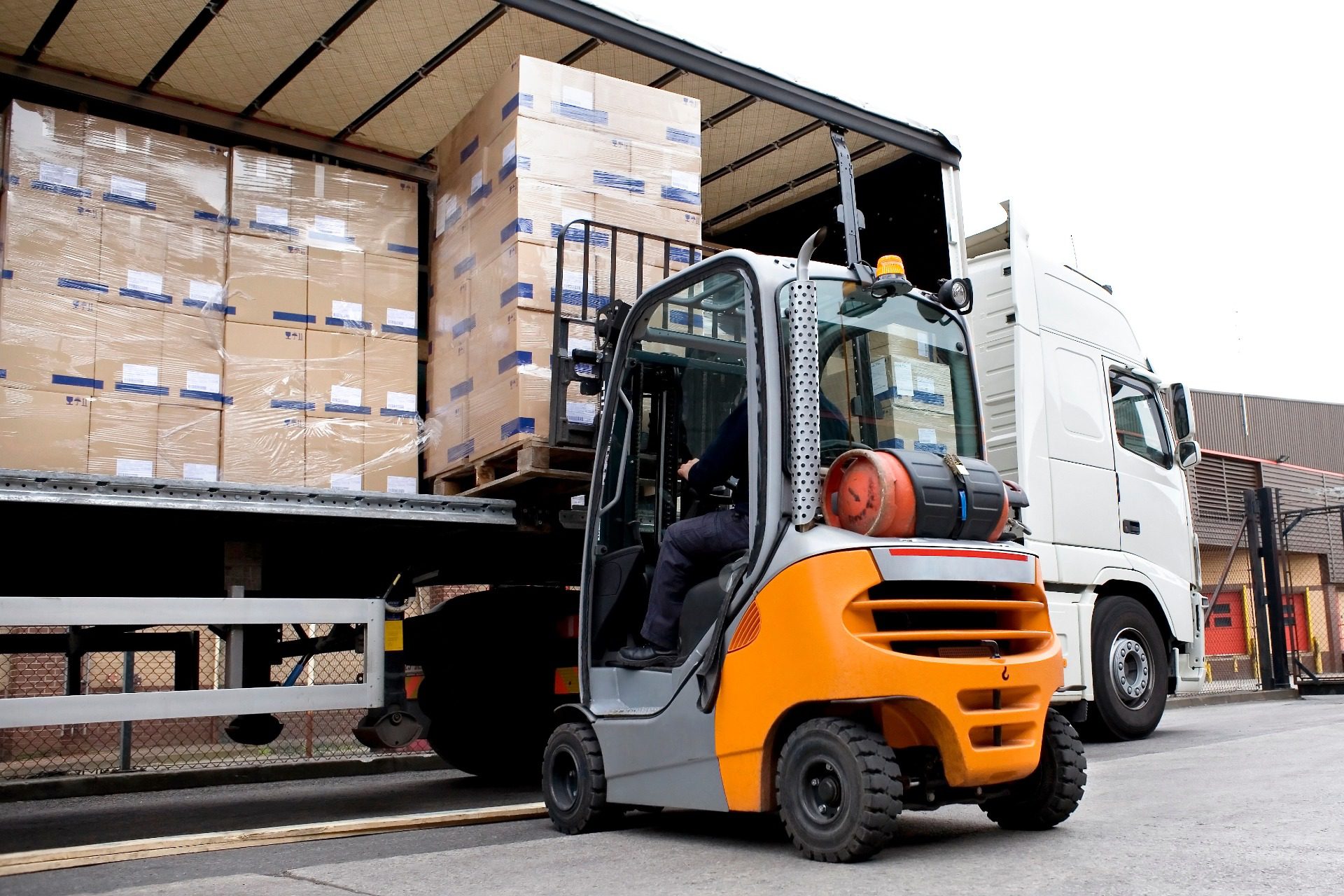International Commercial Terms (incoterms) were designed by the International Chamber of Commerce (ICC) to make international trade easier by creating a universal standard language, a list of terms uniformly recognized throughout the world in regards to shipping and transporting goods internationally.
There are many industry terms importers and exporters need to be well-versed in to guarantee their shipping relations are well understood. Some are more common than others, such as Free On Board (FOB), Free Carrier (FCA), and Ex Works (EXW). FOB, while being a fairly common term within freight collect shipping, is largely misunderstood. In this article, ShipCalm will explore what FOB is, the pros and cons of FOB, and how a third-party logistics company like ShipCalm can help your business with all its shipment needs.
What Is FOB Shipping?
Free On Board (FOB) is one of the most common of the incoterms. It essentially indicates who is liable and responsible for goods if they are damaged, lost or destroyed during shipment. FOB states that the Free On Board (FOB) is one of the most common incoterms, so it’s expected for business owners to have a firm grasp of what FOB is. FOB shipping essentially indicates who is liable and responsible for goods if they are damaged, lost, or destroyed during shipment. FOB states that the seller should pack the goods and deliver and load them onto the ship fully cleared for export. The cost and risk of the shipment are transferred to the buyer only after the goods are on board safely at a mutually agreed upon shipping port. The shipper is free of any obligation regarding the goods once they are on the ship.
Common Attributes of FOB Shipping
Despite their convoluted language largely drafted in legal speak, it is the responsibility of all parties involved in a shipment to be sure they understand all incoterms. If these terms are miscommunicated, a simple shipment may turn into a wildly expensive mishap fairly quickly.
Incoterms are important for several reasons, but especially if you’ve found yourself asking the question, “What does FOB mean in shipping?” FOB is involved in numerous areas of the shipping process, so it’s important you take the time to understand the full picture of FOB shipping, and what FOB means for your business model. Here are a few attributes of FOB:
- Defines the transaction for the exporter (seller) and the importer (buyer)
- Helps buyer and seller communicate all provisions
- Ensures all parties understand risks, and the cost, tasks and responsibilities
- Determines all logistics of a shipment
- Outlines the transportation management from exit to reception
- Distributes all obligations and responsibilities
Pros to FOB
There is a reason FOB is one of the most common incoterms. There are some major advantages to this shipping, including:
- The seller will handle the local export process
- The buyer will remain in control of the shipping costs and arrangements
Cons to FOB
It’s important to understand all sides of the FOB process, and there are some disadvantages to FOB, too. Some of the disadvantages include:
- Potential for seller to mark up local transport costs
- Chance for higher unit costs
FOB Shipping Point vs. FOB Destination
FOB shipping point (also known as FOB origin) and FOB destination point reference the moment in the transaction where the title of the goods transfers from seller to buyer. This is a very necessary distinction in that it determines succinctly which party is responsible and liable for any lost or damaged goods during the shipping at any given time. The major difference between the two terms is the timing of the transfer.
- FOB shipping point – Notes responsibility of goods and title transfer from seller to buyer once the goods are loaded on the delivery vehicle at the shipping point. Once this happens, and the legal title of all goods is transferred to the buyer, the seller is no longer responsible for the goods.
- FOB shipping point cost – Seller is responsible for all fees and transport costs only until the point in time that the goods have reached the port of origin. It is then that the buyer becomes financially responsible for any and all costs that are associated with the transport, customs, taxes and any other fees.
- FOB destination – Means that transfer of ownership and responsibility occurs at the buyer’s loading dock, their post office or their physical location. Upon delivery to the buyer’s noted location, the title is transferred to the buyer, who then owns the goods and is legally responsible for them.
- FOB destination cost – Seller is responsible for all fees and transport costs right up to the point that the goods reach the actual destination. Once the goods reach entry to the port, the responsibility for fees transfers to the buyer.
There are also some variations to FOB destination:
- Freight Prepaid and Allowed – Seller pays and bears freight charges. Seller remains owner of goods during transit. Seller files any claims (if there are any).
- Freight Prepaid and Added – Seller pays freight charges and then bills them to buyer. Seller remains owner of goods during transit. Seller files any claims (if there are any).
- Freight Collect – Buyer pays and bears freight charges once goods are received. Seller remains owner of goods during transit. Seller files any claims (if there are any).
- Freight Collect and Allowed – Buyer pays freight charges once goods are received. Buyer deducts freight charges from invoice. The seller bears freight charges and remains the owner of goods during transit. The seller is responsible for filing any claims as necessary.
What is Freight Collect Shipping?
Now that we understand what FOB is, let’s dive into another common phrase within shipping, Freight Collect. Freight Collect indicates that the responsibility for freight charges payments is on the buyer/receiver of the products and goods. The amount of freight charges is due once the cargo arrives at its destination. So once the goods are in the buyer’s hands by the ocean freight company against a valid Bill of Lading once the freight charges are fully paid. When calculating the overall cost of goods, freight charges can become quite substantial. The rates for these freight charges will fluctuate depending on the transportation mode used for transit, the cargo’s volume, as well as the type of goods being shipped.
Those familiar with various incoterms might feel that Freight Collect shipping is fairly similar to the Cash on Delivery (COD) system in place in online trading shipments. COD varies in that the customer only pays for the item purchased after it’s been delivered by the courier. Freight Collect shipping, on the other hand, means that only the freight is paid by the buyer at the time of delivery and a separate arrangement for payment towards the cost of goods and other various charges is a separate transaction.
The Difference Between FOB and CIF
Another term that is commonly confused to have the same meaning as FOB is CIF, also known as “cost insurance and freight”. CIF is used by sellers to maintain primary ownership of their products until they are delivered to their destination. The seller also assumes all responsibility for the shipment of these goods, so they’ll cover the cost of insurance until the goods are in the buyer’s hands. Once the shipment passes the buyer’s port of destination, all liability will then shift from the seller to the buyer. CIP makes it so that all responsibilities within the shipping process are on the seller to take care of once the shipment leaves their home port, so they will pay all insurance costs, provide customs documents for all locations, and assume liability for a safe and correct shipment.
The main difference between FOB and CIF lies in the transference of ownership and liability. In a FOB shipping arrangement, liability and title possession shift once the shipment leaves the point of origin, while with CIF, the responsibility moves to the buyer once the goods reach the point of destination. For this reason, buyers tend to prefer CIF while online sellers should lean toward FOB shipping to access better control over their shipment, maintain a higher profit, and save the buyer money on their orders.
The Role of Your 3PL
Incoterms are an important part of international trade. They are used to assign responsibilities and costs to buyers and sellers. A clearly defined agreement is necessary to protect the interests of both parties. Buyers in particular need to understand the contract they are agreeing to so they clearly comprehend the costs and risk, as well as all tasks associated with international transportation and delivery. Incoterms all have their own nuances and intricacies that can be difficult to navigate on your own, so understanding what FOB means and how it varies based on other shipping options is always a smart move.
Working with a 3rd party logistics (3PL) provider like ShipCalm allows businesses to simplify the process of understanding incoterms. ShipCalm is an expert in all things shipping, from shipping terms and logistics to affordable order fulfillment and management services. Especially for international shipments that need to be streamlined as much as possible, ShipCalm is here to help. Don’t take chances with your international deals that could end up costing you tremendously. Contact ShipCalm today to learn more about how we can be your partner and resource in international shipping – we take the uncertainty out of the complexities of incoterms.




